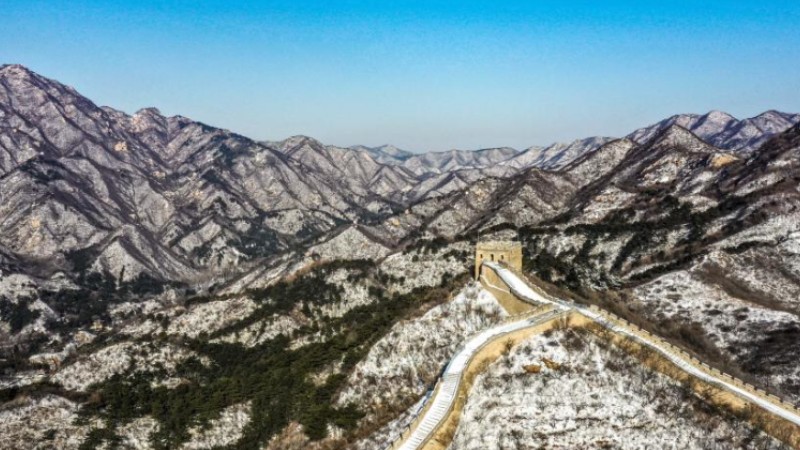Yearender: Winter sports booming across China in post-Beijing 2022 era
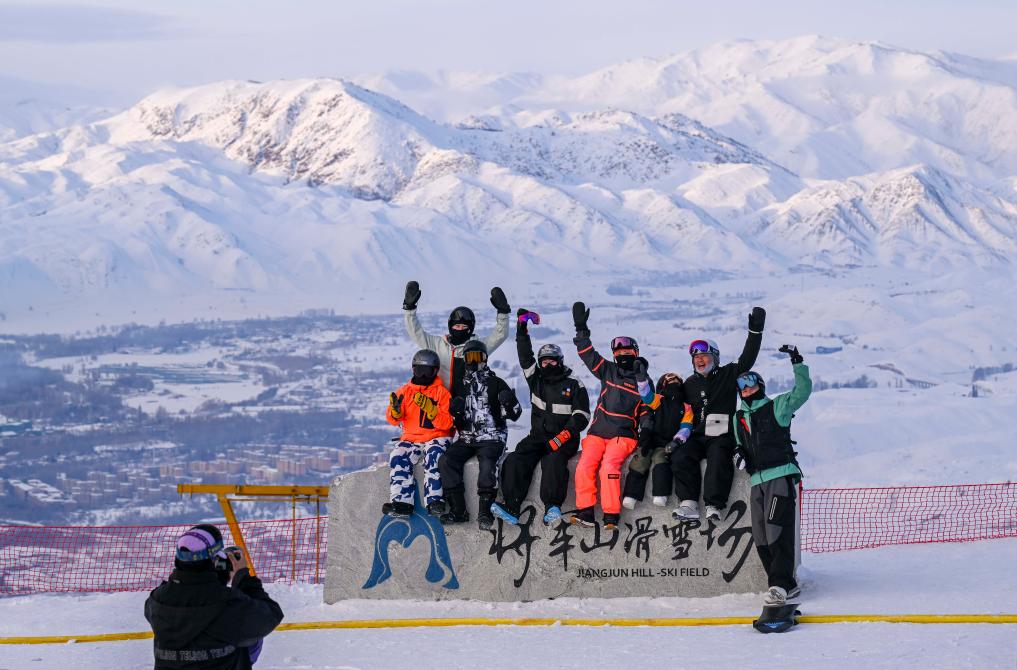
Tourists pose for photos at a ski resort in Altay City, northwest China's Xinjiang Uygur Autonomous Region, Dec. 30, 2022. (Xinhua/Hu Huhu)
BEIJING, Dec. 20 (Xinhua) -- The year after the 2022 Winter Olympics has seen sustained passion for winter sports across China, encompassing both the country's snowy north and the warmer southern regions.
This Olympic participation legacy has not only fueled local economies, but has also positioned China as an emerging global hub for winter sports.
PACKED COMPETITION SCHEDULE
A packed schedule of international competitions has unfolded in Beijing since mid-November, bringing back some epic memories from the 2022 Winter Games.
The National Speed Skating Oval, lauded as the "fastest ice" due to its cutting-edge ice rink conditions, hosted the 2023-2024 ISU World Cup Speed Skating in November, and the National Sliding Center in Beijing's Yanqing suburb staged the bobsleigh and skeleton World Cup concurrently.
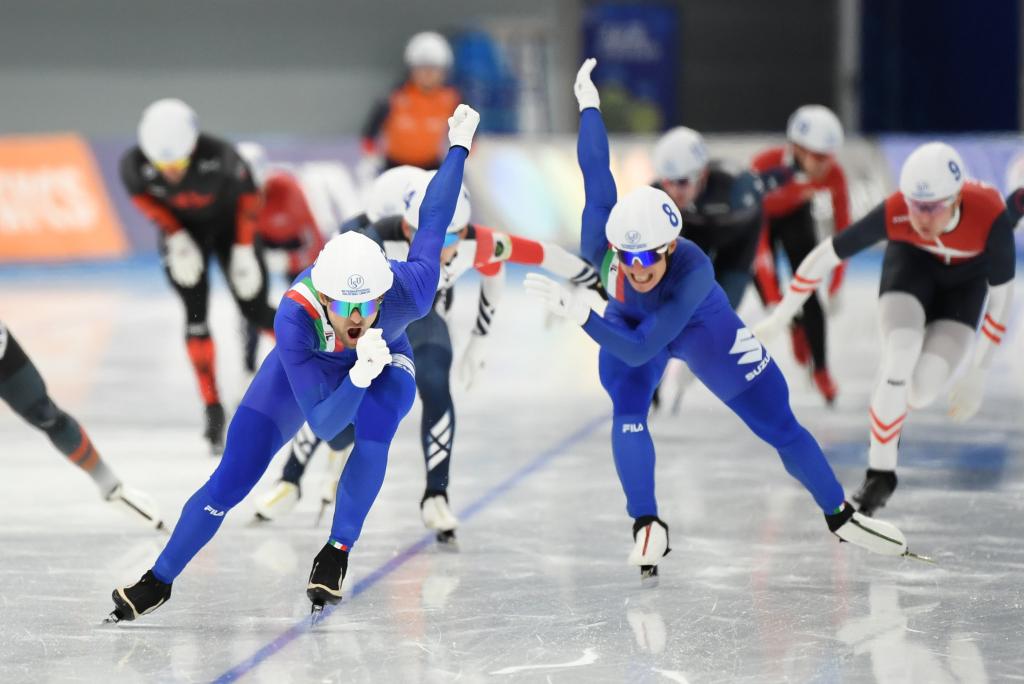
Andrea Giovannini (front) of Italy leads the field away during the ISU World Cup men's mass start at the National Speed Skating Oval in Beijing, Nov. 19, 2023. (Xinhua/Ju Huanzong)
Beijing's Shougang Park, an iconic venue from the 2022 Winter Games, welcomed the return of big air action with the FIS Snowboard and Freeski Big Air World Cup between November 30 and December 2. Chinese prodigy Su Yiming headlined an elite roster of the world's finest snowboarders for the second stop of the 2023-2024 World Cup series.
"It is where my dreams began," Su said after securing the men's title. "The atmosphere is fantastic. It's heartening to see more people getting to know and participate in this sport."

Su Yiming in action during the men's snowboard big air final at the FIS Snowboard and Freeski Big Air World Cup at Big Air Shougang in Beijing, Dec. 2, 2023. (Xinhua/Xu Yanan)
Just one week later, the FIS Freeski Halfpipe World Cup season opened on an incredible high in Chongli. As expected, Olympic champion Gu Ailing ruled yet again at the Secret Garden Ski Resort. "Coming back and having my first competition here in Secret Garden after 11 months out of the bib, it's a dream come true," said Gu.
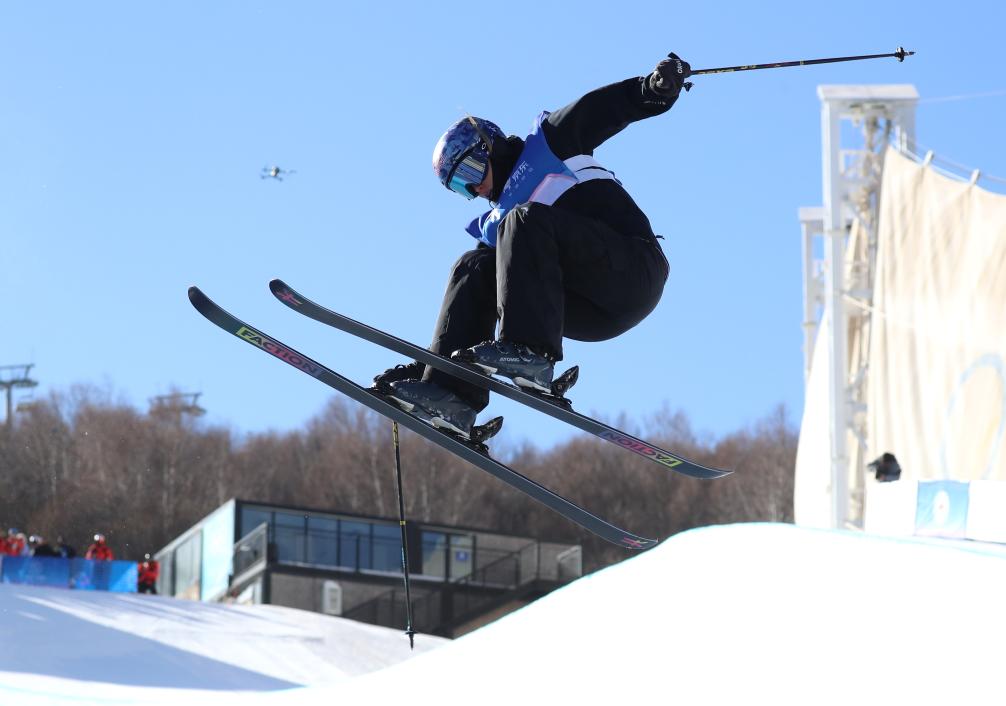
Gu Ailing gets some air during the women's halfpipe final of the FIS Freeski World Cup in Zhangjiakou, north China's Hebei Province, Dec. 7, 2023. (Xinhua/Yang Shiyao)
The ISU Short Track Speed Skating World Cup and the Grand Prix of Figure Skating Finals took place between December 7 and 10, marking the end of a month-long streak of top-tier international events in the Chinese capital.
China's southern regions, such as Chongqing and Shanghai, have also hosted skating competitions, signalling a geographical spread of winter sports in the country.
With Harbin having secured the hosting rights for the 2025 Asian Winter Games, China is set to consolidate its position as a hub for winter sports events in years to come.

Skaters pose for photos after the closing banquet of the ISU Grand Prix of Figure Skating Final in Beijing, China, Dec. 10, 2023. (Xinhua/Ju Huanzong)
MASS ENTHUSIASM CONTINUES
Tickets for the ISU Short Track Speed Skating World Cup and Figure Skating GP Finals were almost sold out, highlighting the enthusiasm of the Chinese public for winter sport.
"I have a deep love for short track, and I brought my child here to experience the live atmosphere," said a spectator surnamed Zhang. "I firmly believe that sport is the best way of education in the world, and I hope my child gains a sense of team spirit."
Chongli's Genting Ski Resort received 6,600 visitors on November 25, its highest daily record since the resort opened in 2012. Since its opening on November 9, the Yabuli ski resort in northeast China's Heilongjiang Province has witnessed average daily traffic of 5,500 visitors, with a maximum single-day high of 7,500 visitors, surpassing the levels of previous years during the same period.
Some regions previously not well-known to the outside world are also emerging as popular ski destinations. Altay, in northwest China's Xinjiang Uygur Autonomous Region, is top of the list as its three ski resorts - Jiangjun Mountain, Koktokay and Jikepulin - offer better terrain variety and a longer ski season.
Online platform Ctrip released data that revealed a continuous surge in interest in skiing in Xinjiang, with a 155 percent increase in popularity, while snow resorts experienced a 128 percent rise in interest.

Peng Chao hikes in Altay, northwest China's Xinjiang Uygur Autonomous Region, on Jan. 26, 2023. (Photo by Hu Yue/Xinhua)
Yang Yang, China's maiden Winter Olympic gold medalist who currently serves as vice president of the World Anti-Doping Agency, has observed a notable uptick in youth participation in winter sports following the 2022 Games.
"The Winter Olympics captured the nation's imagination, introducing many to the allure of ice and snow sports. With this foundation, I firmly believe the potential for growth post-Games is astronomical," Yang said.
Thanks to the construction of indoor facilities, winter sports have also gained popularity in the warmer southern regions. For the first time in history, regions like Guangdong and Chongqing have formed their winter sports teams, aiming to compete at the National Winter Games in 2024.
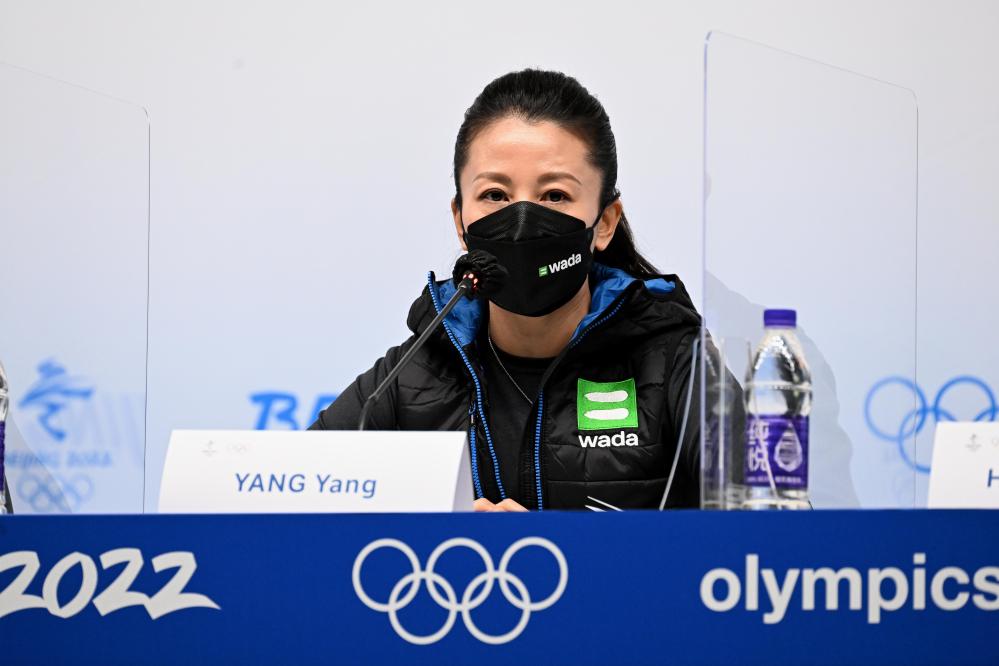
World Anti-Doping Agency (WADA) Vice President Yang Yang speaks during a press conference at the Beijing 2022 Winter Olympics, Feb. 2, 2022. (Xinhua/Li An)
ICE AND SNOW ECONOMY HEATS UP
The rising interest in winter sports has led to the growth of the winter sports industry and created more jobs.
According to a white paper on China's ski industry, the number of ski resorts in China has grown from 200 to over 700 in the span of a decade. In 2014, there were only five indoor ski resorts in China; by 2023, that number exceeded 50.
Li Qun, originally from northeastern China, took on the role of a skiing instructor at Guangdong's Guangzhou Bonski Resort in 2020.
"These enthusiasts range from young children to those over 60, and they are not content with merely knowing how to ski but are dedicated to honing skills," said Li. "Indoor ski resorts offer a 'snow season' throughout the year, which is why I chose to come to Guangzhou."
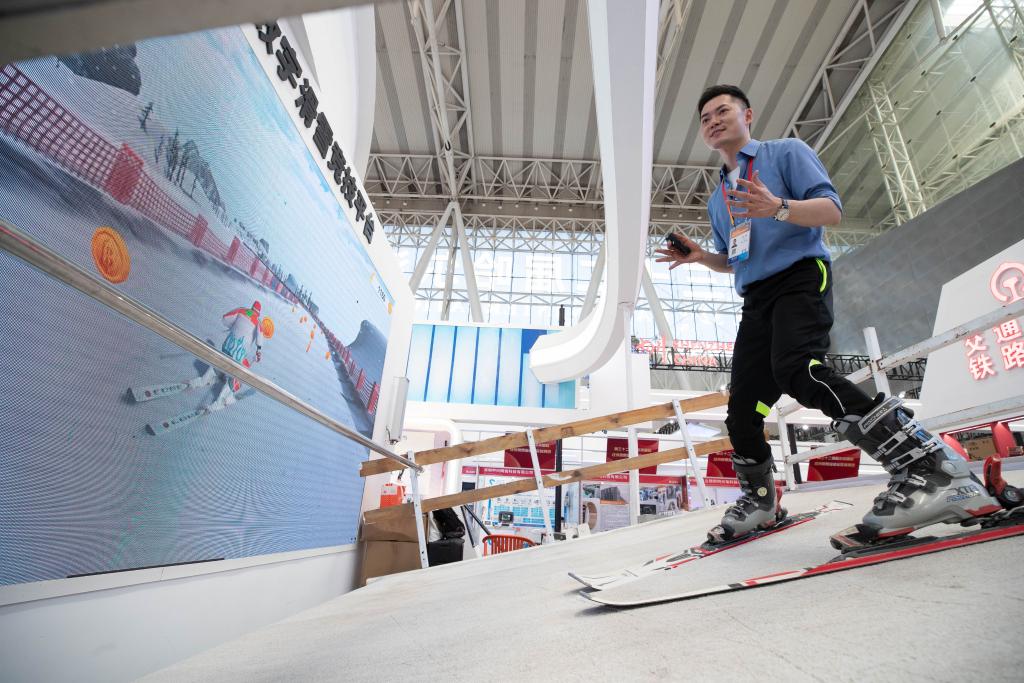
An exhibitor demonstrates ski gear at the 32nd Harbin International Economic and Trade Fair in Harbin, northeast China's Heilongjiang Province, June 15, 2023. (Xinhua/Zhang Tao)
By 2025, China's winter sports sector is projected to hit one trillion yuan (140 billion U.S. dollars), according to a research report by the Asia Digital Group.
"Considering the current rate of growth, as evidenced by the report pegging the industry at 890 billion yuan by 2023, reaching the trillion-yuan milestone seems imminent," said Zhang Li, executive vice president of the Asia Digital Group which orchestrated the World Winter Sports Expo (WWSE) in Beijing.
Photos
Related Stories
- Feature: China's "sock city" promoting ice and snow economy
- Chinese snowboarder Su Yiming bags gold at Big Air World Cup
- Germany dominate, Zhao wins historic medal for China at IBSF World Cup
- Team China wins short-track gold at ISU World Cup
- China seal men's relay gold at ISU Short Track Speed Skating World Cup
Copyright © 2023 People's Daily Online. All Rights Reserved.






